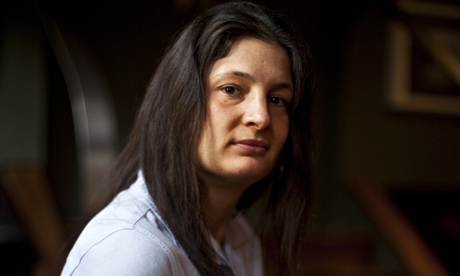
This is a very bodily novel. It is full of sweat and breath and want, sticky and bright. Ismael, and his sisters – Rosie, who is inward and quiet, and Cristina, who is more solid and social – are deaf, as are many people in the small Maya village in which they live. In their community the deaf and hearing communicate easily via sign language, and life is simple; each day has its pattern, its cadence. But following a violent fight, Ismael has to flee the village for the city, leaving Rosie and Cristina to cope alone. He finds himself in a world which does not understand him and which is often disorientating and hostile. His sisters also find their lives disrupted by his absence, their world made unfamiliar and unsettling.
Louise Stern’s debut novel is incredibly vividly written. Born deaf herself, she conveys the physicality of sign language, the repetitions and emphasis, while exploring the ways in which language shapes both the world that surrounds her characters and their interior landscapes. The imagery is rich and sometimes slightly heightened, sun-baked and cloud-slow, heavy-footed, scented with herbs. It is also full of small explosions, of pain, of joy. The language has a cushioning, languid quality, the prose heady and summer-drunk, but also precise. It’s a difficult thing to sustain and can feel unrelenting at times, but it suits the near fable-like narrative. The drumbeat of Rosie’s thoughts punctuates the novel: “me Rosie-old me bite into orange, taste sweet juice, sweet spill chin.” Emotions are described as physical things, which can be voided from a person and captured in one’s hands, spread to the air, and the novel constantly examines what it is to communicate, with words, with hands, with eyes, with skin, all the unvoiced things that pass between siblings.
Ismael and His Sisters is published by Granta, £12.99. Click here to buy it for £10.39

